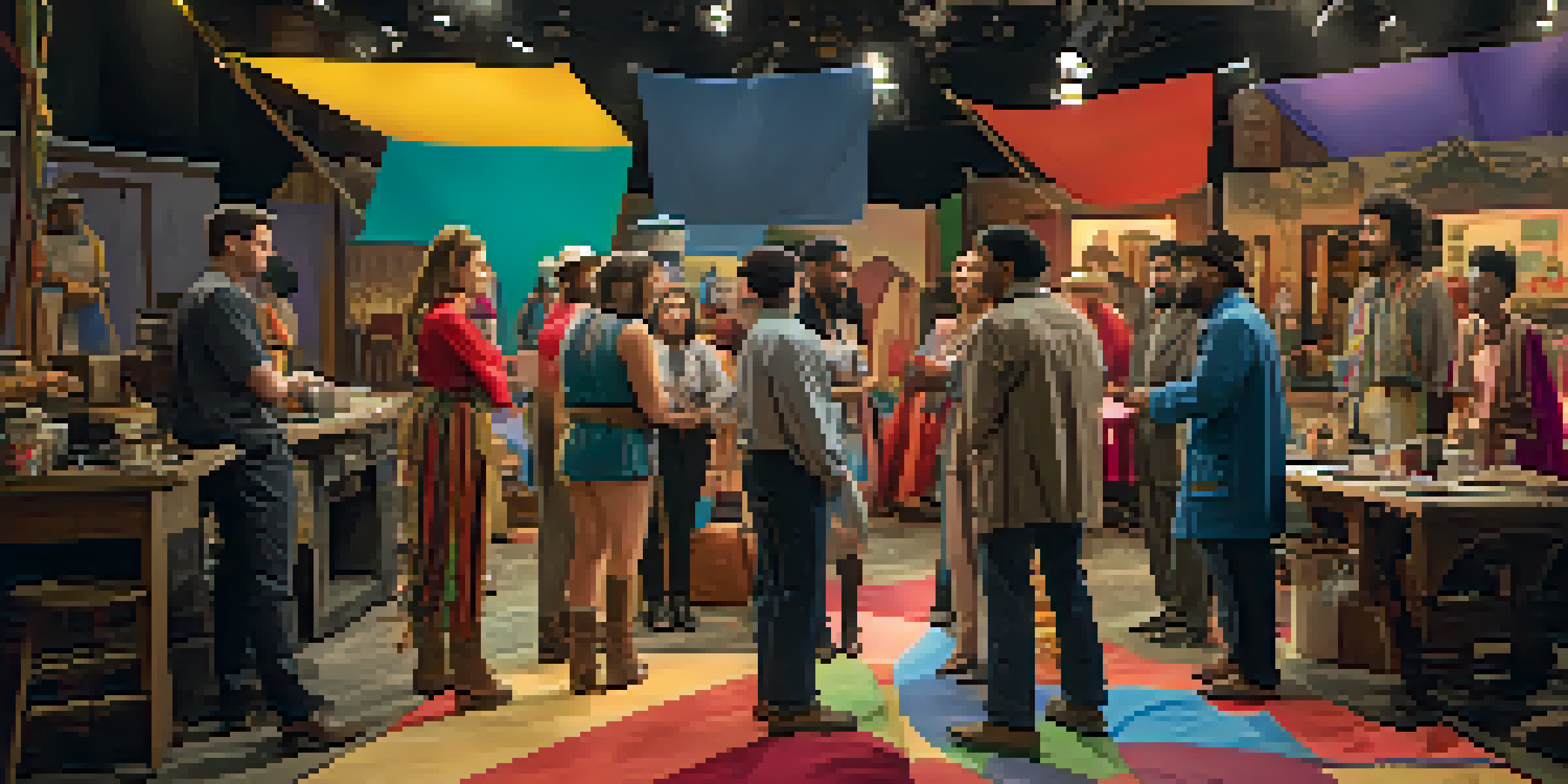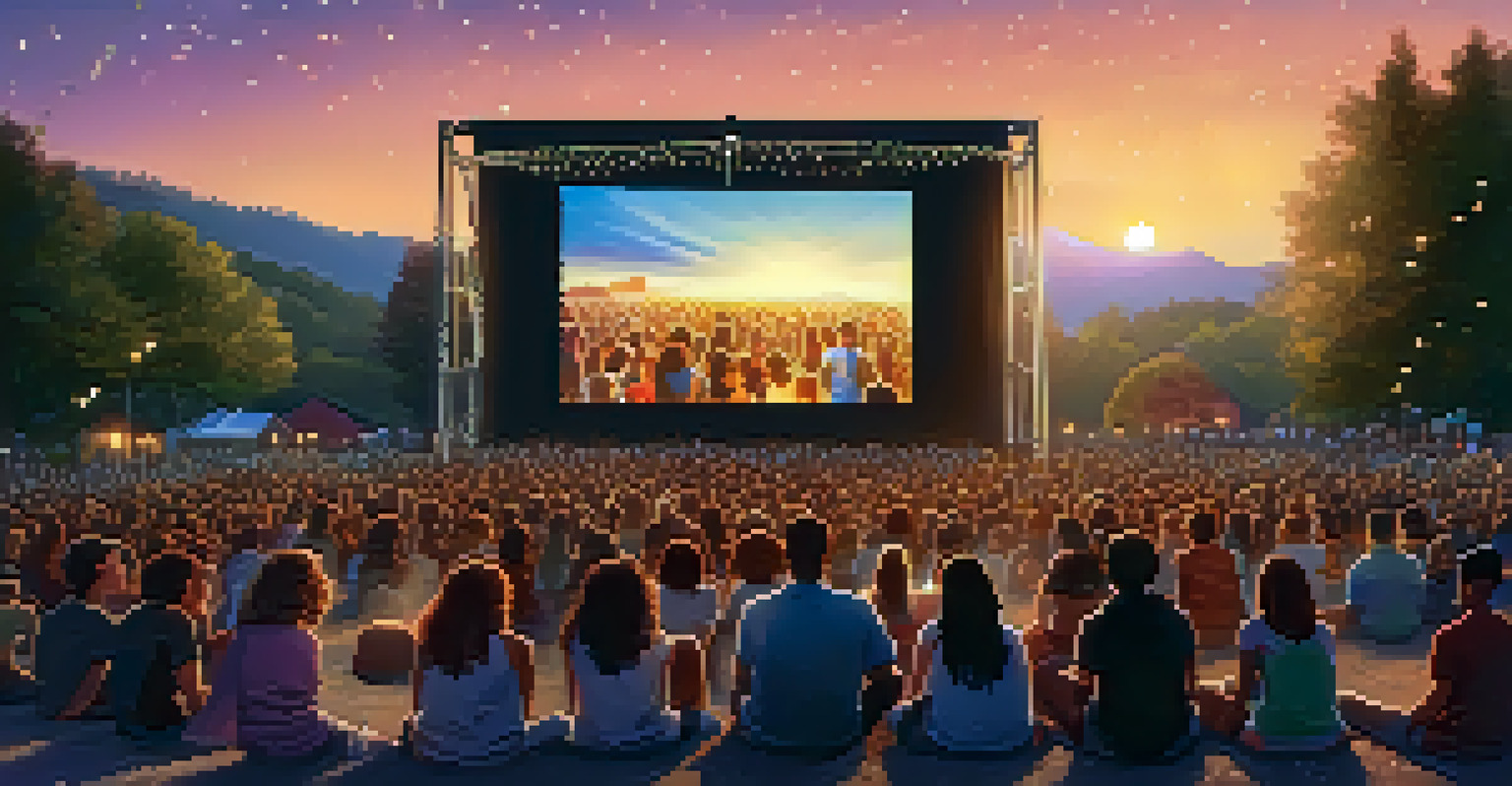The Impact of Representation in Hollywood on Social Justice

Understanding Representation in Hollywood
Representation in Hollywood refers to how different groups are portrayed in films and television. It includes aspects like race, gender, sexuality, and ability. When diverse voices are included, it helps shape public perception and attitudes toward those groups.
Representation matters. It is the difference between being seen and being invisible.
Think of representation as a mirror reflecting society. If the mirror only shows a narrow view of life, it can create misunderstandings and reinforce stereotypes. A broader representation allows for a more accurate reflection of the world we live in.
As audiences engage with diverse stories and characters, they begin to empathize with experiences outside their own. This empathy is crucial for driving social change and promoting justice, as it challenges ingrained biases.
Historical Context of Representation in Film
Historically, Hollywood has often sidelined or misrepresented minority communities. From the 'whitewashing' of characters to the portrayal of racial stereotypes, the industry has a long way to go. These portrayals have lasting impacts on societal views and treatment of these groups.

For example, the early 20th century saw the emergence of the 'mammy' stereotype in films, which perpetuated harmful notions about Black women. As society becomes more aware of these issues, the call for authentic representation has gained momentum.
Diversity Shapes Public Perception
Including diverse voices in Hollywood helps reflect society more accurately and fosters empathy among audiences.
By understanding the historical context, we can better appreciate the importance of current efforts for inclusivity. This awareness can inspire filmmakers to create stories that honor the true diversity of human experience.
The Role of Storytelling in Social Change
Storytelling is a powerful tool for influencing social change. Through compelling narratives, filmmakers can shed light on social justice issues that might otherwise be overlooked. Films often spark conversations, encouraging audiences to reflect on their own beliefs and biases.
Diversity is being invited to the party; inclusion is being asked to dance.
For instance, movies like '12 Years a Slave' and 'Moonlight' have brought critical issues such as racial injustice and identity to the forefront. These stories resonate with viewers, making them reconsider their perspectives on societal norms.
When stories are told from diverse viewpoints, they challenge the status quo and inspire action. By amplifying underrepresented voices, Hollywood can drive meaningful dialogue on crucial social issues.
Impact of Social Media on Representation
Social media has transformed how audiences engage with film and representation. Platforms like Twitter and Instagram allow for immediate feedback and discussion, amplifying calls for diversity. This has created a more interactive relationship between creators and viewers.
Movements like #OscarsSoWhite have highlighted the lack of diversity in nominations and awards, pushing for change within the industry. Such online campaigns show that audiences are demanding fair representation and accountability from filmmakers.
Storytelling Drives Social Change
Compelling narratives from varied perspectives challenge societal norms and encourage meaningful dialogue on important issues.
As social media continues to evolve, its role in shaping conversations about representation will only grow. This dynamic interaction holds the potential to influence the kinds of stories that get told and who gets to tell them.
Examples of Positive Change in Hollywood
In recent years, we've seen a notable shift in Hollywood towards more inclusive storytelling. Films like 'Black Panther' and 'Crazy Rich Asians' have not only achieved commercial success but also showcased diverse casts and narratives. These films have broken box office records while celebrating cultural authenticity.
These successes illustrate how representation can resonate with audiences and lead to wider acceptance of diverse stories. They challenge the notion that films featuring underrepresented groups cannot be mainstream hits.
This positive change demonstrates that when Hollywood embraces diversity, it can create a ripple effect, encouraging other filmmakers to follow suit and explore a broader range of experiences.
Challenges Still Facing Diverse Representation
Despite progress, significant challenges remain in achieving true representation in Hollywood. Many stories are still told through a predominantly white lens, leaving out rich narratives from marginalized communities. This can lead to a lack of genuine understanding and empathy for those experiences.
Moreover, the pressure to produce commercially viable films can steer studios away from investing in diverse projects. This creates a cycle where stories that need to be told are often left untold, reinforcing existing inequalities.
Challenges in Achieving True Diversity
Despite progress, the film industry still faces barriers that hinder authentic representation and understanding of marginalized communities.
Addressing these challenges requires ongoing advocacy and support for diverse creators. By pushing for equitable opportunities in the industry, we can work toward a Hollywood that genuinely reflects the diversity of society.
The Future of Representation in Film
The future of representation in Hollywood looks promising, with a growing number of creators advocating for change. Initiatives aimed at increasing diversity behind the camera are gaining traction, leading to more authentic stories being told. This shift can foster a more inclusive environment for both filmmakers and audiences.
As new voices emerge, they bring fresh perspectives that challenge old narratives and stereotypes. This evolution is crucial for creating a film industry that is representative of all people and experiences.

By continuing to push for change, audiences can help shape the future of Hollywood. This collective effort not only enriches storytelling but also plays a vital role in advancing social justice.